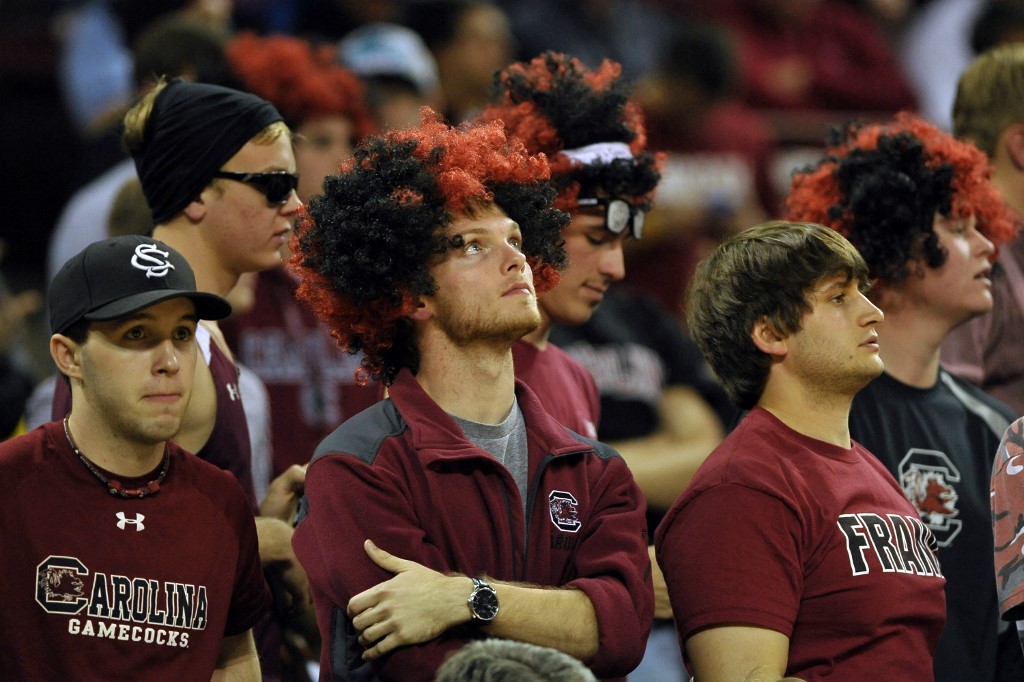Three gaming bills are being discussed at a South Carolina House subcommittee, including a sports betting bill that would allow statewide access to mobile sportsbooks. This marks one of the most significant legislative pushes for regulated gambling in the state in recent years, signaling a shift in how lawmakers approach gaming and sports betting issues in the Palmetto State.
As discussions unfold, the outcome could set a precedent for future gambling debates throughout the Southeast.
Public Sentiment Shifts
Many of South Carolina’s lawmakers are in office due to a constituency that advocates conservative and religious values in the Palmetto State. But despite that, sports betting has become so mainstream throughout the United States that much of the stigma tied to it has dissipated.
Public attitudes have shifted considerably since the Supreme Court struck down PASPA in 2018, and watching neighboring states embrace legal wagering has further fueled debate among policymakers and citizens. The increased normalization of betting is prompting policymakers to weigh both the risks and benefits more seriously.
New Polling Data
South Carolina is one of the remaining holdouts, with only a lottery and no land-based casinos or any form of sports betting permitted to operate within the state’s boundaries. However, a public opinion poll taken by Benchmark Research reveals 70% of South Carolinians support sports betting, which could provide the impetus to gain legislative traction. Increasing backing from voters and younger demographics may force lawmakers to take a closer look at regulating this growing industry. With public acceptance steadily rising, advocates hope lawmakers will feel compelled to act.
H3625, also known as the South Carolina Sports Wagering Act, would legalize sports betting, create an oversight commission tasked with awarding licenses, and levy a revenue tax. Earlier this week, the House Ways and Means Committee’s Revenue Policy Subcommittee heard testimony from supporters and opponents of the bill but did not take a vote, preferring to consider amendments to the bill and reconvene at a future date.
The discussion around this bill points to ongoing negotiations and the possibility of revisions aimed at expanding bipartisan support. The upcoming sessions may see more intense lobbying and increased public comments as the bill evolves.
Lawmakers Express Concerns
Subcommittee Chair and Representative Bruce Bannister said, “If we’re going to do anything, we’ll reconvene and take action on the bills and amendments at that time.”
Representative John McCravy believes the bill in its present form is too nebulous and would need clarity if it had any chance of passing. McCravy stated that the measure “would need a lot of work to avoid unintended consequences.”
Lawmakers remain sharply divided between those who see the economic upside and those who urge caution about possible social impacts. As with gaming debates in other states, the final version will likely require compromise and additional regulatory safeguards to advance.
Supporters & Detractors
Bringing sports betting to a state devoid of gambling, with the exception of a state lottery in South Carolina’s case, is not an easy task, but it is not impossible. Hawaii is one of two non-gaming states, with Utah being the other, that has no state lottery, but a sports betting bill is in the works and could become law during this legislative session.
These developments in other non-gaming states are also shaping conversations in South Carolina, where legislators are closely watching external trends. Many believe that if legislation succeeds in other conservative states, it could serve as a model locally.
Therefore, sports betting faces a difficult road ahead in South Carolina. Supporters and critics of a sports betting bill have been all too willing to make their opinions heard on the issue. The legislative process is expected to continue into the next session, with potential for further committee hearings and amendments. With the issue gaining more attention, additional research and fiscal analyses may further shape the debate.
Industry Perspective and Potential Revenue
Michelle McGregor, a spokesperson for the industry trade group the Sports Betting Alliance, testified in front of the committee in support of H3625 and said a sports betting bill would generate $60 million in revenue for the state.
New tax revenue could be allocated for public education, infrastructure projects, or healthcare—appealing to legislators seeking additional funding options. Supporters point to success stories from neighboring states as proof that legal betting can bring meaningful fiscal benefits.
“People here in South Carolina are already betting on sports,” SBA’s Michelle McGregor said to the committee.
“I’m not just talking about the office March Madness pool, but the hundreds and thousands of people who are placing wagers on illegal, offshore websites or with their local bookie. The American Gaming Association estimates that here in South Carolina, roughly $1 billion is wagered annually on these offshore sportsbooks that have no oversight or consumer protections and certainly do not generate tax revenue for the state.”
Legalization could provide meaningful regulation for both operators and bettors, along with crucial consumer safeguards. Regulated markets, backers say, help address problem gambling and ensure a safer playing field.
Religious and Social Opposition Remains Strong
However, opposition voices were also heard with a joint letter released from the Catholic Diocese of Charleston and the South Carolina Baptist Convention condemning any expansion of gambling in the state.
Palmetto Family Director of Communications Justin Hall said, “What you could see in an increase in state tax revenue, you’re also going to be paying more for public safety. You’re also going to be paying more in trying to cancel out or close out some debts. Anything we think would be a positive, that the vast majority of folks think would be a positive, is going to be offset by these rising peripheral costs or some bottom-line costs.”
Many faith and social advocacy groups continue to warn of the potential negative impacts on families, addiction rates, and local communities if the sports betting bill advances. The outcome of this lively policy battle promises to have ripple effects throughout the region for years to come.







